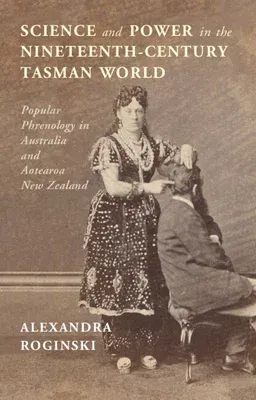Alexandra Roginski
(Author)Science and Power in the Nineteenth-Century Tasman World: Popular Phrenology in Australia and Aotearoa New ZealandHardcover, 1 June 2023

Temporarily out of stock
Free Delivery
Cash on Delivery
15 Days
Free Returns
Secure Checkout

Part of Series
Science in History
Print Length
300 pages
Language
English
Publisher
Cambridge University Press
Date Published
1 Jun 2023
ISBN-10
1316519449
ISBN-13
9781316519448
Description
Product Details
Author:
Book Format:
Hardcover
Country of Origin:
US
Date Published:
1 June 2023
ISBN-10:
1316519449
ISBN-13:
9781316519448
Language:
English
Location:
Cambridge
Pages:
300
Publisher:
Series: